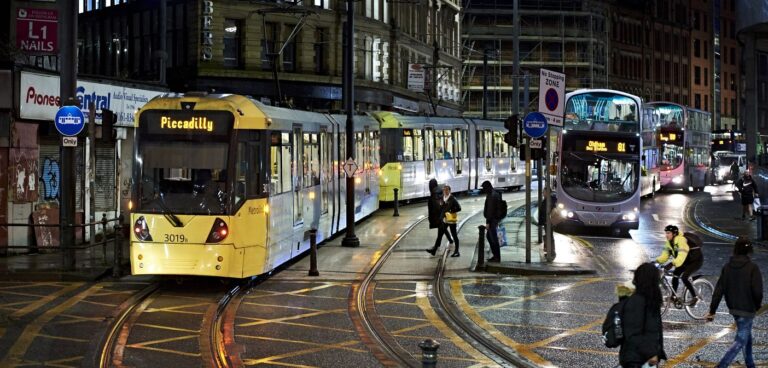Greater Manchester Combined Authority (GMCA) will soon decide whether it should introduce bus franchising in the city.
City leaders will meet later this month to consider plans for an integrated transport system, which would see Greater Manchester become the first city-region outside of London to operate a fully franchised and locally accountable bus system.
Currently individual bus companies decide the routes, fares, timetables and standards. There are more than 150 different types of bus ticket and a single bus ticket can cost £4, compared to £1.55 in London.
Furthermore, currently ticket types often do not allow passengers to transfer between buses or other types of transport.
According to GMCA, franchising would bring bus services, including routes, frequencies, fares and standards, under local control.
GMCA said it would coordinate the bus network based on what passengers need and would also coordinate investment.
The bus operators would be commissioned by GMCA to run the services and integrate buses with the rest of transport network.
Richard Leese, deputy mayor of GMCA, said: “Buses are central to our public transport network, with three out of four journeys made by bus, but it has been clear for a long time that our buses could be better.
“We have now held consultation over two periods on a proposed franchising scheme and have asked for people’s views on the proposals in light of the Covid-19 pandemic.
“In both consultation periods, there were high levels of support for franchising and the benefits it would bring for the future of Greater Manchester’s buses.”
More than 12,500 consultation responses were received in total on GMCA’s proposals to change how buses are run.
Some 86% of responses to the first consultation period supported the franchising scheme, with 82% of the second consultation period agreeing with the proposal of franchising bus services.
Leese added: “People, businesses and other organisations have overwhelmingly told us that they want change. They want buses that are easier to use, with services that connect to each other and other forms of public transport.
“They want simpler fares and tickets, and they can also see the wider benefits of franchising for the city-region and our recovery from the Covid-19 pandemic.”





